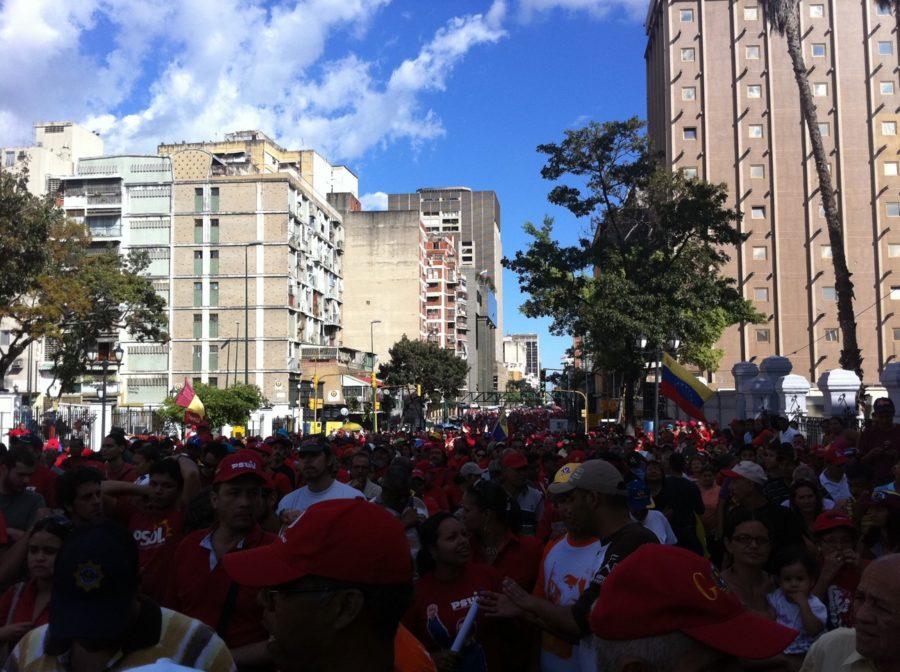Thousands of Venezuelans that included supporters of President Hugo Chavez and the opposition gathered across Caracas on Sunday, January 23 to mark the 53rd anniversary of the overthrow of General Marcos Perez Jimenez. The overthrow is today known as “Democracy Day.” Chavez supporters held five separate demonstrations in public squares across Caracas and then marched to the presidential palace in the afternoon to listen to a speech by the president and some of his ministers. In Eastern Caracas, a single rally was held by the opposition and chanted anti-Chavez slogans and denounce to what they refer to as the implementation of “Cuban Communism” by the president.
The coup that led to the ousting of General Perez Jimenez in 1958 is seen as the end of the last military dictatorship and the beginning of democracy in Venezuela. Today, the anniversary of January 23 has become a highlight of political division and tension in the country. During his speech, the president claimed “that the fall of Perez did not mark the fall of the dictatorship in Venezuela,” but rather dictatorship ended after the Punto Fijo Pact was scrapped in 1999 when the people, “elected me, a simple soldier, as president.”
The Punto Fijo Pact was formed in 1958 after the coup against General Perez and created a political system that limited power to three mainstream political parties: The Christian Democratic Party (COPEI), Democratic Action (AD), and Democratic Republic Union (URD). The Communist Party of Venezuela (PCV) was excluded from this deal although they had an important role in the overthrowing of Jimenez. During the Punto Fijo Era, thousands of communists and progressives were hunted down, killed, jailed, and disappeared by the new political powers. Many others fled to the mountains to renew the armed struggle.
When Chavez was running for president the first time in 1998 he claimed he wanted to end the “Puntofijismo” system and would bring more power and opportunity to other independent political parties. The Punto Fijo political system would indeed fall out favor and ended when Chavez came into power in 1999 through the creation of the Bolivian constitution by a national referendum.
Chavez also criticized in his speech those who deemed him a dictator. There were protests against the Chavez government on Sunday in Madrid, Bogota and Miami. He said those protests were, “in support of Punto Fijo dictatorship,” and the old political system. Chavez continued, “The Venezuelan right says they are ready to come back but they and the dictatorship of Punto Fijo will never come back!”
The president and his political party, Venezuelan Socialist and United Party (PSUV), have repeatedly defeated the opposition in wide range of national elections. Many in the opposition inside and outside of Venezuela claim Chavez to have rigged all his presidential elections although they were all under the watch of international electoral watchdogs. The president addressed these accusations as well. “They accuse me of being a dictator… they must be crazy,” he said.
Chavez hopes to be elected as president again in the 2012 elections and if he is successful, he will hold power until 2019 where he will be 65 years old. “In 2012, the Bolivarian Hurricane will return!” he exclaimed in reference to the Venezuelan masses and his supporters.












